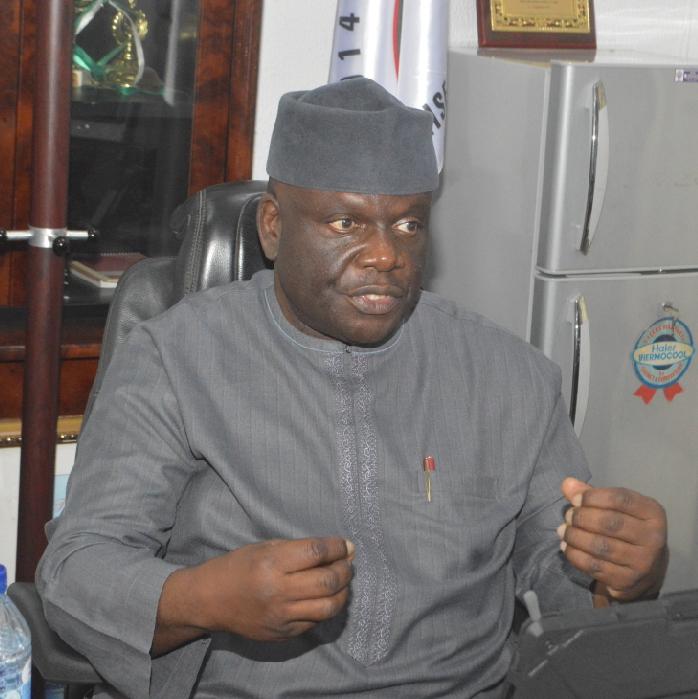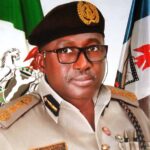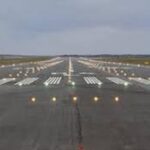
A fortnight ago, an operator brought to the fore lingering complaints by airlines against the Nigerian Civil Aviation Authority over an alleged personalization of the rules in its dealings with domestic carriers.
The management of Tropical Arctic Logistics (TAL), led by its Chief Operating Officer, Femi Adeniji, recently accused the Nigerian Civil Aviation Authority (NCAA) of frustrating the company from renewing its Air Operator’s Certificate (AOC).
According to Adeniji, TAL applied for the renewal of its AOC on September 7, 2020, which was seven days before the expiration date and in accordance with the Nigerian Civil Aviation requirement Part 9.
“With all our post holders that we have different departments in NCAA. Some of them go above the board to help. There is abundant evidence that all the manuals we submitted and resubmitted with amendment it was said that some were lost by the NCAA Airworthiness Standards Directorate. And as proof, two manuals were brought back last weekend out of seven that we reprinted. They just found them after seven months of submission. It is on record that futile attempts were made to heap the blame on COVID-19,” Adeniji narrated.
He said that new manuals were however reprinted and resubmitted, but surprisingly, the lost manual, despite meeting the regulator’s requirements, the AOC renewal was still delayed by the Directorate of Airworthiness and Standards.
“Consequently, (our) operation has been grounded, which delayed the process of the AOC too. We did apply for extension to avoid grounding of our operation, but we were denied on the 16th of December. Up till date, NCAA still has our maintenance control manual at the Airworthiness Directorate and our AMP, which is the Aircraft Maintenance Programme.
“The department claimed that its refusal to approve the manual was based on the fact that we do not have post holders on manuals submitted in September 2020. Yes, presently some post holders have resigned because when you don’t have operation for 18 months, and we still pay salaries, how do you justify that and pilots and engineers, based on what their profession is, need to put their hands to work,” he said.
Adeniji alleged that the Directorate was corrupt and cited an example. “Generally, why does Airworthiness Directorate replicate manuals? When you submit manuals they expect you to put them in CDs, USB and Word document because they use that, copy paste to work for somebody else when they are supposed to be a regulatory body. Indeed, I have never seen a situation where initial certification is the same process as renewal when the regulator already has information of the company with you,” he alleged.
NCAA Reaction
However, the Director General of NCAA, Captain Musa Nuhu, in his reaction, said that the NCAA has no reason whatsoever to refuse the renewal of anybody’s application. He said TAL did not meet the requirement for renewal of its AOC, stressing that its AOC would not be renewed until the company met all the regulatory requirements.
On the allegation of replication of manuals to use for other operators, Captain Nuhu said, “It does not make sense; there is no logic in that. All manuals are specific to an operator. I cannot use airline X manual to process the AOC for another airline because they are not the same, the context is not the same.”
On the alleged vindictive delay in the renewal of AOC for airline operators, the Director General denied this, and said that all the airline operators in Nigeria, most of them renewed their AOC within the last one year and some were delayed but “we gave them extension due to COVID-19 shutdown. Have you heard any airline operator complaining that we refused to renew their AOC? Let him bring evidence, you can’t go to the market and start yelling, fronting all sorts of accusations and there is no evidence,” Nuhu said.

THISDAY spoke to some officials of NCAA and airlines who threw more light on the vexatious issues raising controversy in the industry as it concerns regulation.
Duration of AOC
Like Adeniji stated, senior airline officials who spoke to THISDAY disagreed with the NCAA’s policy of renewal of AOC every two years, and also complained that it is the same process which a new airline goes through to obtain the certificate that an existing airline that has been operating also goes through despite the fact that NCAA regulates the airlines and appointed officers that monitor the activities of the operators.
A top official of one of the major airlines in Nigeria, who has worked with two well-known mega carriers in the world, told THISDAY that in many countries AOC is for life for the airline, unless if the regulatory authority rescinds it. The source said that NCAA hurts the airlines through stiff regulations and also introduces stringent measures that may not even be necessary for the operating environment.
The source frowned at the situation of repeating the same process for initial AOC on airlines that are renewing theirs.
“Every process they use for airlines that want to get new AOC is what they use for renewal. The same process; that is what we do every two years and the problem really is that Airworthiness Standards Directorate has few experienced hands who worked with the defunct Nigeria Airways Limited (NAL), but the others started work with NCAA from the university,” the source said.
The source said that NCAA does not think about the survival of airlines, unlike the US Federal Aviation Administration (FAA), which looks at financial implication of processes for airlines, noting that as regulatory authority NCAA ought to also look at financial implications of its directives to airlines and review those that do not have bearing on safety and may not also be urgent.
The source recalled that when EU introduced resolution alert 7.1 for Traffic Collision Avoidance System (TCAS), due to the heavy traffic in the European airspace, FAA did not insist that its airlines should install the software because its airspace does not have such congestion. Rather, it directed that every new aircraft manufactured must have the software. This is because it considered the high cost of airlines installing the software in their existing aircraft fleet.
Adeniji also asked, “Why do you have to renew licences every two years? Why do you have to go through the five steps? Every three or six months, you amend your manuals; so why are you still required to go through step one to step five when you want to renew? It doesn’t make sense. In the US, they come every month to look through your manuals and every year, you are bound to do a comprehensive audit, the same thing in Brazil, Venezuela and other countries.”
Oversea Aircraft Inspection
The operators also criticised the policy of flying NCAA inspectors overseas to go and insect aircraft after maintenance or during the acquisition of new equipment. Former Director General of NCAA, the Late Captain Muhtar Usman told THISDAY that the policy does not improve safety but it was a policy decided by the Nigerian regulatory body, which need had been overtaken by events with ICT.
He cited the instance of Brazil where the regulatory authority would specify to the airlines what it wants in the aircraft and it would be brought into the country and the civil aviation authority would inspect it and approve or disapprove if the conditions given were not met.
But in Nigeria, an airline that has aircraft on maintenance overseas would pay NCAA about N3 million (it could be less, depending on the country where the aircraft is being maintained) for business class flight and accommodation. But THISDAY learnt that even after paying the money to NCAA, the airline still gives money to the inspector and most of the time pay for his accommodation and daily allowance of $500 for the five days he is to inspect the aircraft.
“NCAA creates tough situations to arm-twist airlines. Sometimes, they give contradictory directives – the source showed THISDAY two memos on the same subject with different directives and signed by two different persons with dates indicating one week apart. NCAA inspectors are not supposed to travel overseas for aircraft inspection because there is nothing they do overseas they cannot do in Nigeria. This is because aircraft inspection is about documentation. The inspector will just look at the document. If it is on maintenance, he will inspect the sign off of every check by the maintenance organisation that checked the aircraft.
“NCAA charges airline for five days. The airline will pay about N3 million, depending on the destination. The inspector, if satisfied, will certify for the release of the aircraft for service, but despite the payment to NCAA, airlines pay inspectors unofficially and the inspectors rarely spend the five days. Most often they spend only two days and also airlines pay for the inspectors’ accommodation. The airlines really pamper the inspectors because if you don’t treat them well, they can just give you ferry permit, which enables you to bring the aircraft to Nigeria and not to operate it. They can keep your aircraft on the ground for as long as they want,” the source told THISDAY.
The source also commended the Director General of NCAA, Captain Nuhu, saying that since he took over he has been very professional but regretted that the Airworthiness Standards Directorate has been making things tough for the airlines, adding that although the Director General can overrule the department but they rarely do that.
The source also added that since the Covid-19 pandemic broke, the Director General has stopped overseas inspection of aircraft.
Renewing AOC
THISDAY also spoke to a senior official of NCAA and a former Director General.
The senior official said that if it is difficult for an airline to meet the conditions of obtaining AOC, it is denied; that if an airline is not given an AOC it means it did not meet the requirements. He said that 80 per cent of the AOC process is under the operations department and not Airworthiness, adding that the process could be delayed because Airworthiness officials have a lot of documents to review.
The official also insisted that an airline seeking to obtain a new AOC and the one under operation that wants to renew its AOC do not follow the same processes.
“A lot of operators don’t even understand how it works. Your documentations must be correct. The International Civil Aviation Organisation (ICAO) looks at the documentation,” he said.

On why AOC is renewed every two years, the official said that it is possible to elongate the period for AOC renewal, but airlines should understand their environment, adding that if an airline is doing its C-checks as at when due and abide by the rules, AOC renewal is not tough. He added that airlines and NCAA are partners, stressing that the authority cannot shove out the “people you are doing business with.”
A former Director General of the agency told THISDAY that it is only the Directorate of Airworthiness Standards that has the power to sign AOC, adding that the agency has changed so much since he left. He said that NCAA ought to work well with the airlines, recognize their problems and help them to solve them.
The CEO of one of the airlines told THISDAY that the solution to the arbitrariness that manifests among some officials of NCAA is that airlines should stop funding the agency 100 per cent. He remarked that the situation now is encouraging a corrupt system, which may in future imperil safety. He confirmed that airlines pay NCAA, then pay allowance to inspectors and pay for their accommodation.
“NCAA should not be funded by the airlines. How can banks fund the Central Bank of Nigeria that regulates them? But airlines are funding NCAA 100 per cent. The airlines pay for everything; so how can they inspect and then write negative report?
“We have been advocating that NCAA should be funded separately. The restructuring of the funding of NCAA is very important. This will shape the aviation industry in future.






